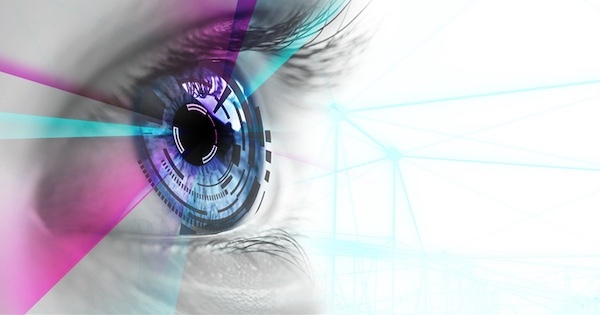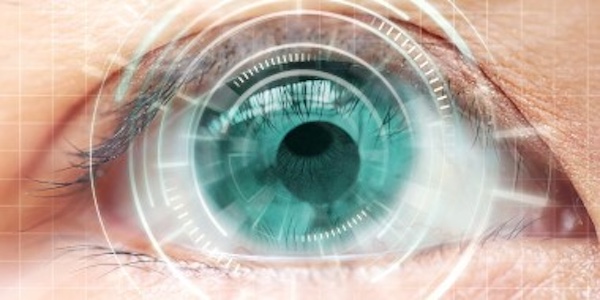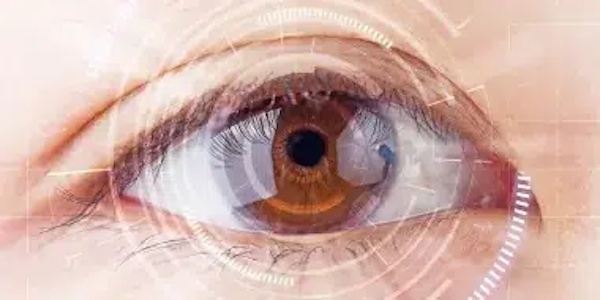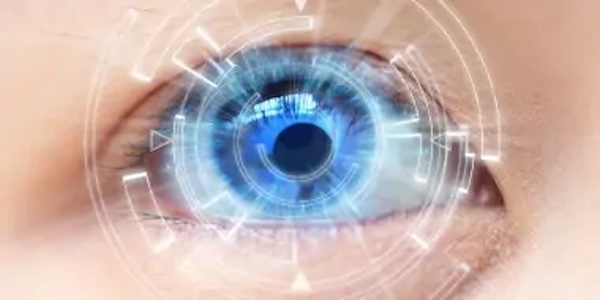Cataract Surgery in Fort Myers, Naples, Cape Coral & Bonita Springs
Cataracts pose a common challenge as we age, impacting our vision and quality of life. But what are cataracts, what causes cataracts and how do they affect your eyesight? Whether you’re experiencing blurred vision, sensitivity to light or difficulty seeing at night, cataract surgery in Fort Myers or Naples can significantly improve your quality of life.
Get a FREE Cataract Screening this month at any Snead Eye Group location.
How Safe Is Cataract Surgery?
More than 4 million cataract surgeries are performed every year in the United States. It’s widely regarded as one of the safest major surgical procedures performed today and has an extremely low complication rate. Patients often feel nervous about eye surgery, but cataract surgery is known for its high success rate, quick recovery and consistently reliable outcomes. In fact, cataract surgery is safer than driving to the surgery center, statistically speaking.
At Snead Eye Group, precision is the foundation of every cataract procedure. Our cataract surgeons in Fort Myers and Naples deliver accurate, predictable outcomes that help reduce concerns many patients feel before surgery. With careful planning, meticulous technique and a focus on your comfort and well-being, our ophthalmologists work to ensure your cataract surgery is as safe as possible.
How Much Does Cataract Surgery Cost?
The cost of cataract surgery varies based on the type of lens you choose. Many patients choose to finance their procedure because it allows them to select the lens option that best supports their lifestyle, including premium lenses that provide a higher level of visual clarity and can reduce dependency on glasses.
You can get the best vision possible for as little as $270 per month when financing with CareCredit. This flexible payment option allows you to prioritize your long-term vision without delay. Our team is here to walk you through your choices and help you find the best option for your eyes.
What Causes Cataracts?
Aging is the most common cause of cataracts, and anyone can develop them, regardless of gender, race or ethnicity. As you age, proteins in your eye’s lens clump together, creating cloudiness that impacts vision. Cataracts may begin forming in your 40s or 50s, but noticeable symptoms may not appear until after age 60. Genetics also plays a role, increasing your risk if an immediate family member has had them.
Other less common causes of cataracts include:
- Chronic diseases like diabetes and high blood pressure
- Overexposure to sunlight
- Smoking and excessive alcohol consumption
- Long-term steroid use
- Eye injuries
Identifying symptoms, such as blurry vision and sensitivity to glare, is crucial for early intervention.
How Do Cataracts Affect Your Vision?
Cataracts develop gradually, clouding the eye’s natural lens and making it harder to see clearly. Cloudy lenses distort light as it enters the eyes, leading to these common symptoms:
- Blurred vision
- Dulled color vision
- Sensitivity to bright light
- Poor night vision
- Glare from the sun, headlights and other light sources
- Double vision
- Frequently changing eyewear prescription
- Noticeably cloudy eyes
As the condition progresses, everyday activities, such as reading, driving or even recognizing faces, become more difficult. Vision loses sharpness and detail, creating a constant haze that affects your independence and confidence.
Cataracts also influence more than just your eyesight; they can affect your mental health. Struggling to see clearly can make social interactions harder since it becomes more difficult to read nonverbal cues, such as facial expressions and body language. This barrier can lead to feelings of frustration or isolation over time.
The emotional impact is just as significant. Daily tasks that were once effortless may feel stressful. Additionally, worries about accidents or further vision loss can negatively impact your overall well-being.
Ultimately, cataracts prevent you from fully enjoying life’s most meaningful moments. From watching the beautiful Fort Myers or Naples sunsets to seeing the expressions on loved ones’ faces, the world becomes less vibrant and more difficult to experience.
What Is Cataract Surgery?
Cataract surgery is a revolutionary procedure that restores clear vision by removing the eye’s cloudy natural lens and replacing it with a clear artificial intraocular lens (IOL). At Snead Eye Group, our cataract surgeons in Fort Myers, Naples, Cape Coral and Bonita Springs use the most advanced technologies available to ensure precise results and faster recovery times.
Cataract Surgery in Fort Myers and Naples: Consultations and Treatments
Modern advancements in laser eye surgeries have made recovering after cataract surgery more comfortable than in years past. Snead Eye Group is one of the only eye surgery centers in Fort Myers and Naples to offer LenSx® Femtosecond Cataract Laser Surgery. Snead Eye Group has some of the best cataract surgeons in Southwest Florida, and we use an FDA-cleared custom laser to make more precise incisions for fewer complications during your procedure.
Premium Cataract Surgery
With offices in Fort Myers, Naples, Bonita Springs, and Cape Coral, we strive to improve the recovery experience for our Southwest Florida patients. If you’re considering this treatment, you may be wondering what to expect from cataract surgery. Our friendly cataract specialists are here to answer your questions and guide you every step of the way.
When you choose cataract surgery at Snead Eye Group, you and your eye doctor will decide which replacement lens, or IOL (intraocular lens), is best for you. Because many factors determine the best lens option, our cataract surgeons will assist you in making an informed decision on the lens most suitable for your lifestyle. See below to understand the most popular premium IOL options we offer.

Light-Adjustable Lenses for Customization After Cataract Surgery
The Light Adjustable Lens (LAL) is an innovative intraocular lens that is customizable after cataract surgery. While standard lenses have a fixed prescription, the LAL allows your ophthalmologist to fine-tune your vision once your eyes have healed by using a series of light treatments. These non-invasive adjustments help achieve your best possible vision based on your real-world experience. Patients who choose LAL for cataract surgery in Fort Myers and Naples are more likely to reach 20/20 vision without glasses compared to standard options. The Light Adjustable Lens is FDA-approved and ideal for individuals with astigmatism who want the most personalized visual outcome available today.

Multifocal Lenses for Clear Near, Intermediate and Distance Vision
Presbyopia is a condition that causes near vision to decrease as we age, making it difficult to see things up close. Multifocal lenses are designed to combat the effects of presbyopia for clear distance vision plus a full range of intermediate and near vision, reducing the need for corrective lenses or even reading glasses. Multifocal lenses are for individuals who desire the least amount of dependency on glasses after cataract surgery in Naples and Fort Myers. These FDA-approved lenses give patients clear vision.

Vivity Lenses for Extended Vision with Minimal Visual Disturbances
The Vivity Lens, classified as “Extended Range of Vision,” means patients will be able to see much better at various focal points. The best way to describe this technology is to think of alternative rings of different focusing powers. One set of rings is for focusing on images far away and the other is for objects close up. Only these two distances are in focus and the images in between are blurry. At night, the near-focus rings could even create halos or glare around distant light. These lenses are an option for patients looking for greater flexibility after cataract surgery in Fort Myers and Naples, FL.

Toric Lenses for Distance Vision and Astigmatism Correction
Toric or astigmatic lenses are for individuals who desire better distance vision and correction of their astigmatism. Astigmatism is when the eye is longer or shaped like a football rather than a basketball. Images become distorted as light rays are prevented from meeting at a common focal point. Quite common, astigmatism can be corrected with intraocular lenses and limbal relaxing incisions performed with the LenSx® laser during cataract surgery in Fort Myers and Naples, FL.
Premium IOLs vs. Standard IOLs for Cataract Surgery
Premium IOL options offer enhanced vision at multiple distances, often reducing or eliminating the need for glasses after cataract surgery. Unlike standard lenses, they can also correct astigmatism and age-related near vision loss. Snead Eye Group’s experienced cataract surgeons in Fort Myers and Naples provide these advanced solutions to help patients achieve greater visual freedom. Contact our team for a consultation, and we’ll help find the right lens for your needs.
Cataract Treatments in Fort Myers, Naples, Bonita Springs & Cape Coral
A Proactive Approach to Preventing Cataracts
Cataract surgery in Fort Myers or Naples isn’t just a corrective procedure; it has also emerged as an effective proactive approach to preventing cataracts from further impairing vision. Advancements in medical technology have transformed surgery into a highly effective strategy for preventing cataracts.
During this procedure, your surgeon will remove the cloudy lens and replace it with an artificial intraocular lens (IOL). By addressing the cloudy lens early on, the risk of complications decreases and the potential for maintaining long-term clarity improves. For many patients, understanding what to expect from cataract surgery helps them feel confident about choosing early intervention.
Not only does it preserve and enhance vision, but it can also lead to an improved quality of life. Early intervention with surgery ensures that the cloudy lens is addressed before it significantly impacts daily activities and social interactions. Preserving clarity and preventing progression is within reach.
Choosing the right eye care provider is paramount for achieving optimal outcomes in cataract surgery. Dr. Brad Snead is a distinguished ophthalmologist in Southwest Florida. With more than two decades of experience in ophthalmology, he brings a wealth of knowledge and expertise to every patient interaction. His specialized training ensures that you get the highest standard of care that’s tailored to your unique needs.
Trust Snead Eye Group for Cataract Surgery in Fort Myers or Naples, FL
With more than $1 million in state-of-the-art detection technology, skilled surgeons and personalized care, Snead Eye Group is here to guide you through every step of your journey to optimal vision. Trust our expert approach to cataract prevention and treatment. Schedule a consultation with our ophthalmologists today and take the first step toward clearer vision with confidence.
Expertly Equipped
Our $1 million imaging system provides detection clarity, ensuring vision problems are identified and treated at the earliest stages.
Perfectly Precise
With the expertise of our eye doctors, we provide accurate, targeted treatment to preserve and enhance your vision.
Clearly Caring
It’s our mission to offer compassionate, personalized care. Your eye health is at the heart of everything we do.





